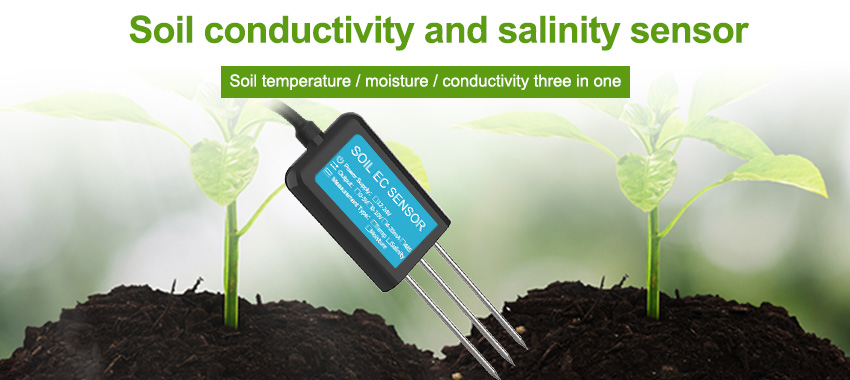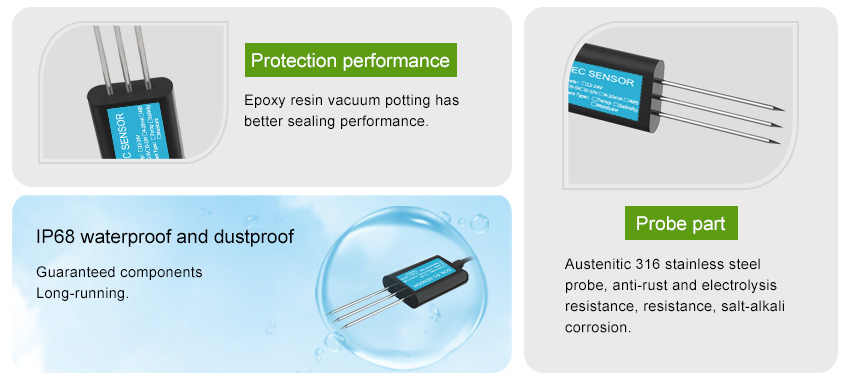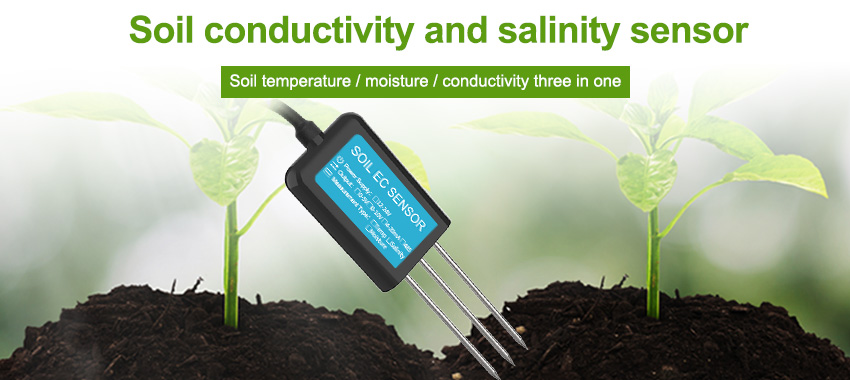Sustainable land use practices are essential for preserving the environment, ensuring food security, and mitigating the impacts of climate change. To achieve sustainable land management, it is crucial to monitor and manage soil health effectively. Soil sensor solutions offer advanced technologies that enable farmers, land managers, and researchers to make informed decisions about soil conditions and optimize land use practices. This article explores the importance of sustainable land use, the role of soil sensors in enhancing soil health, and the benefits of adopting these solutions.
The Importance of Sustainable Land Use:
Sustainable land use is vital for several reasons:

Environmental Conservation: Proper land management practices help protect ecosystems, promote biodiversity, and prevent soil erosion. Sustainable land use practices minimize the negative impact on natural resources, such as water and air quality, and preserve the overall ecological balance.
Food Security: As the global population continues to grow, ensuring sufficient food production is critical. Sustainable land use practices optimize agricultural productivity, improve soil fertility, and reduce the reliance on harmful chemical inputs. This allows for more efficient and environmentally friendly food production systems.
Climate Change Mitigation: Sustainable land use plays a crucial role in climate change mitigation. Healthy soils act as carbon sinks, sequestering carbon dioxide from the atmosphere and reducing greenhouse gas emissions. Proper land management practices can enhance carbon sequestration potential and contribute to global efforts to combat climate change.
The Role of Soil Sensors in Enhancing Soil Health
Soil sensor solutions provide real-time data on various soil parameters, enabling farmers and land managers to monitor soil conditions effectively. Some key aspects of soil health that sensors can measure include:
Moisture Content: Soil moisture sensors measure the amount of water present in the soil. This information helps optimize irrigation scheduling, preventing overwatering or under-watering, and conserving water resources.
Nutrient Levels: Soil sensors can measure the levels of essential nutrients such as nitrogen, phosphorus, and potassium in the soil. This data allows for precise fertilizer application, preventing excess nutrient runoff and minimizing environmental pollution.
pH and Salinity: Soil pH and salinity sensors provide insights into soil acidity or alkalinity levels and the presence of excessive salts. Maintaining optimal pH levels and managing salinity is crucial for plant growth and preventing soil degradation.
Soil Temperature: Monitoring soil temperature helps determine the timing of planting, irrigation, and other agronomic practices. It also aids in understanding soil microbial activity and nutrient availability, contributing to effective crop management.
Benefits of Adopting Soil Sensor Solutions:
The adoption of soil sensor solutions offers various benefits:
Precision Agriculture: Soil sensors enable precise and targeted agriculture practices. By providing accurate and real-time data, farmers can apply water, fertilizers, and other inputs precisely where and when needed. This reduces waste, improves resource use efficiency, and increases crop yields.
Conservation of Water Resources: Soil moisture sensors help optimize irrigation practices, preventing water wastage through over-irrigation. By applying water only when necessary, farmers can conserve precious water resources and contribute to sustainable water management.
Improved Nutrient Management: Soil sensors allow for precise monitoring of nutrient levels in the soil. This enables farmers to adjust fertilizer application rates and timing, reducing the risk of nutrient leaching and minimizing environmental pollution.

Enhanced Productivity and Profitability: By optimizing soil conditions and providing crops with the ideal environment for growth, soil sensor solutions can increase crop productivity and profitability. Accurate data on soil parameters empowers farmers to make informed decisions and implement effective land management strategies.
Environmental Sustainability: By promoting sustainable land use practices, soil sensor solutions contribute to environmental sustainability. Efficient use of resources, reduced chemical inputs, and improved soil health all help protect ecosystems, preserve biodiversity, and mitigate climate change.
Conclusion:
Sustainable land use is crucial for environmental conservation, food security, and climate change mitigation. Soil sensor solutions offer advanced technologies that enable farmers and land managers to monitor soil health effectively. By providing real-time data on soil moisture, nutrient levels, pH, salinity, and temperature, these solutions empower decision-makers to optimize land use practices. The adoption of soil sensor solutions leads to precision agriculture, efficient water resource management, improved nutrient management, enhanced productivity, and environmental sustainability. As we strive for a more sustainable future, integrating soil sensor solutions into land management practices is essential for achieving long-term soil health, environmental conservation, and global food security.







